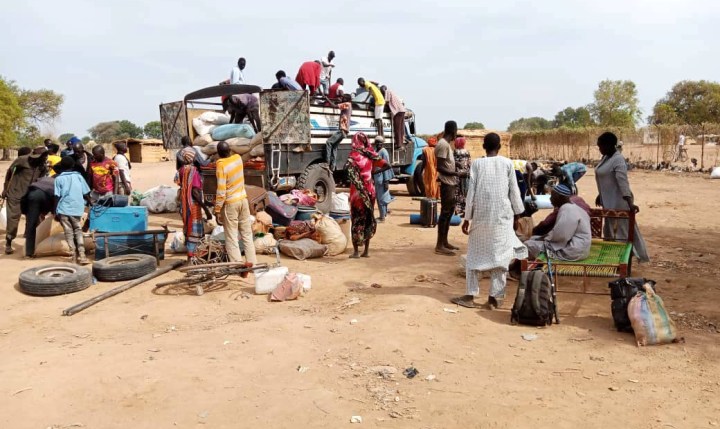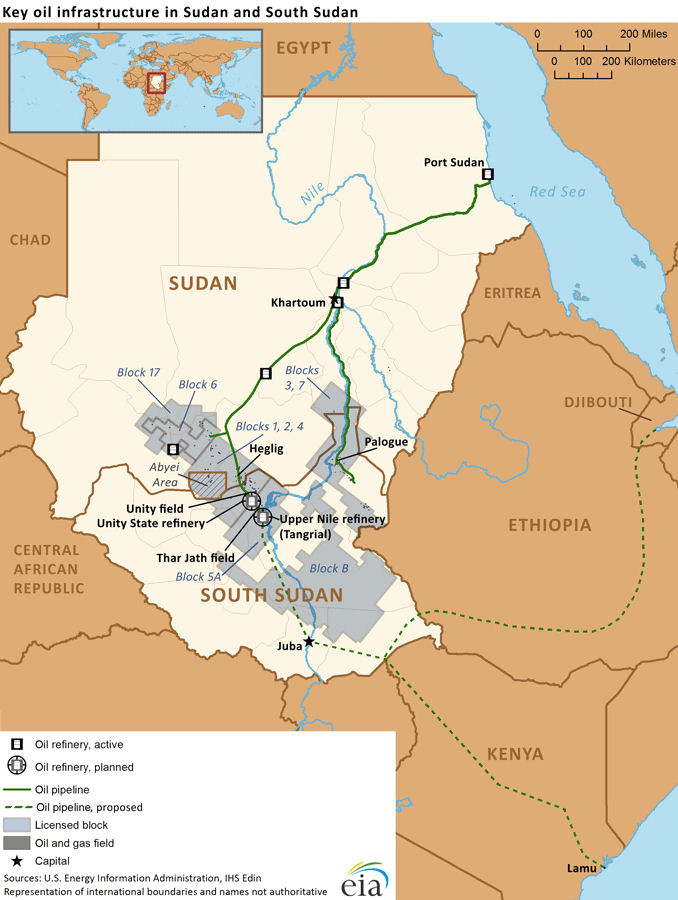ISS TODAY OP-ED
Sudan’s heavy conflict crisis threatens to further delay South Sudan’s sluggish peace transition

To protect oil revenue and avoid disrupting its faltering peace process, South Sudan must remain neutral on Sudan’s war.
The war that erupted in April between elements of Sudan’s security apparatus could hamper its neighbour South Sudan’s already sluggish peace process.
Read more in Daily Maverick: Clashes in Sudan intensify, with no mediation in sight
The Sudan conflict has diverted regional and international attention away from pressuring South Sudan’s government to comply with its transition terms, and could worsen the deep humanitarian crisis and community violence in that country. It also poses a potential threat to South Sudan’s major oil revenue, which could exacerbate competition and mistrust within the leadership.
Implementation of the country’s 2018 peace agreement has been held up by numerous internal and external factors, leading to a two-year extension to February 2025. The extension comes with critical benchmarks to be met before elections in December 2024. These include completing the constitution, unifying and redeploying the armed forces, and reconstituting laws and institutions relating to elections.
The peace process has been jeopardised by a lack of political will to implement critical reforms, a trust deficit among the parties, weak institutions including the security forces, a lack of resources, inter-communal violence, and natural disasters such as floods. External factors include Sudan’s instability since 2019, Covid-19, war in northern Ethiopia, and the United States’ withdrawal of funds from the peace process monitoring mechanisms due to lack of sustained progress.
On top of this is an influx of South Sudanese migrants returning from Sudan — over 117,000 — who add pressure to South Sudan’s already fragile economic and security situation. These returnees urgently need food and other essentials, and proper camps. Their homes have either been burnt or occupied by newcomers, leading to confrontations and violence between returnees and residents. The country’s Unified Security Force isn’t ready to prevent these hostilities.
The problem is particularly acute in places like Malakal, capital of South Sudan’s Upper Nile State and a primary destination for new returnees fleeing the Sudan conflict. The UN Office for the Coordination of Humanitarian Affairs says around 25,000 returnees are expected to arrive and remain in Malakal — already an epicentre of violence due to a shortage of resources.
South Sudan’s humanitarian crisis has been dire for several years due to violence and severe flooding. An estimated 9.4 million of the population currently need assistance, but the government lacks the financial resources to address the country’s problems. Returnees’ unmet demands could lead to further clashes, which can quickly escalate into intercommunal conflicts and attacks on humanitarian actors. Such instability will make completing the many outstanding transition benchmarks even harder.
Sudan conflict
The war in Sudan also threatens the oilfields, pipelines and other facilities based there that South Sudan uses and pays for. This could severely reduce South Sudan’s oil revenue, which accounts for up to 90% of government income. The country sends its crude oil to international markets through its northern neighbour’s Port Sudan on the Red Sea via a 1,600 km pipeline. This makes Sudan the guarantor and protector of oil infrastructure that passes through its territory in return for transit fees from South Sudan.

Although the petroleum ministries of both Sudan and South Sudan have said Sudan’s oilfield facilities are well protected, there are concerns that oil flows to international markets won’t be sustained. There are already reports of Sudan’s Rapid Support Forces threatening to shut down oil pipelines in areas controlled by the militia unless South Sudan agrees to share its oil revenues or stops paying transit fees to the military-led government.
The security of the oilfield could be used as a bargaining chip by Sudan’s warring factions in search of an alliance with South Sudan’s government. If Juba inclines towards one of the forces, the other will likely use the protection of the oilfield to pressure Juba to alter its response. That means security of the oilfield depends on the nature of South Sudan’s involvement in managing the conflict.
Logistics and transport of essential oil production supplies that rely on the route to Port Sudan have also been disrupted. South Sudan has announced it will now import essential oil supplies through Djibouti and Kenyan ports rather than Port Sudan because of the war, adding to South Sudan’s costs.
Although the lack of accountability for government spending of the country’s oil revenue is a major cause of its economic problems, this new threat limits Juba’s fiscal ability to implement important milestones ahead of elections. Given the withdrawal of significant international financial support over the past years, sustainable domestic resources are vital.
If local revenue streams decrease, illegal transactions and competition among the country’s leadership will likely rise as they attempt to fill the gap and pursue their interests. This will fuel suspicion and tension among political groups, making it difficult to resolve key issues before the election.
While de-escalating the conflict in Sudan is a top priority, South Sudan must maintain neutrality towards the warring sides to avoid making the oilfield a target. Protecting the oilfield should be the focus of regional and international conflict resolution efforts, with both sides in Sudan being held strictly responsible. In parallel, international financial assistance is needed to address the dire humanitarian situation in South Sudan. DM
Selam Tadesse Demissie, Researcher, Institute for Security Studies (ISS) Addis Ababa.
First published by ISS Today.




















 Become an Insider
Become an Insider
Comments - Please login in order to comment.